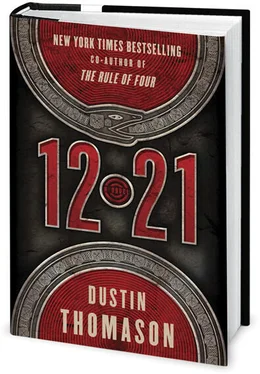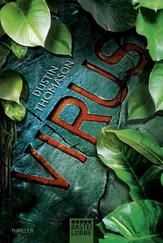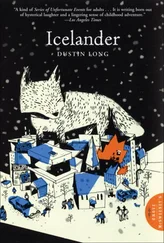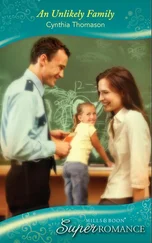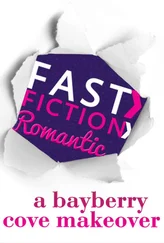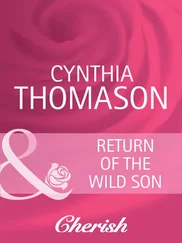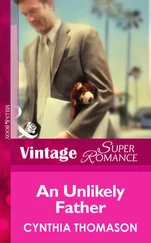“Please continue,” he said.
Even at Victor’s lowest points, Chel had always marveled at his seventy- something energy. When she was in graduate school, he’d do decipherment work for twelve-hour stretches without ever eating or going to the bathroom, and now he’d been instrumental in getting them this far.
Still, as grateful as Chel was, she wasn’t eager to bring up 2012 when he was around.
“The thirteenth-cycle reference is up for interpretation,” Victor said, jumping right in.
“I guess it is,” she responded warily.
“I’ll check the computers,” Rolando said, taking his cue to leave.
Victor went on, “But there are many things that will be up for interpretation, depending on people’s particular biases. And I believe we have other more important things to focus on. Don’t you?”
Chel was relieved. “I do, Victor. Thank you.”
He held up his copy of the translation. “Good, then,” he said. “Let us do that.” He put a hand gently on Chel’s shoulder, and she reached up to meet it with her own for a moment. “I think the first things we must discuss are the implications for the collapse, right?”
“What implications?”
“The possibility this book could tell us something about the collapse we aren’t prepared for,” he said. “What do you see in Paktul’s discussion of the failing city?”
“I see a community stricken by a mega-drought, trying to survive. Paktul says there are barren markets and starving children. The drought must have been going on for at least eighteen months, based on the likely water stores.”
“We know there were droughts,” Victor said. “But what about the reference to the food-preservation techniques they’re using?”
Our army has a new way to preserve food, salting its supplies more heavily than before, so that we may launch wars on lands even more distant.
“What about it?” Chel asked.
“Heavier salting is a major innovation in warfare,” Victor said. “You know war between the polities was often hampered by food supply. Figuring out better salting techniques would have let them fight more effectively.”
“What are you implying?”
“I’m just saying, the ability to wage more war ultimately made them more vulnerable.”
“To what?”
“To everything.”
Now she understood. Victor had made this argument forever, even before his 2012 hysteria: He believed her ancestors were better suited to simpler, more rural lives, and that the cities—for all their glory—fostered the self-destructive excesses of despotic kings. “The ancients could have ruled for a millennium if it weren’t for the droughts,” she said. “They used their technology to great advantage.”
Victor disagreed. “Let us not forget that the Maya have endured much longer droughts living in the forests than they ever did in the cities. Once they moved back into the jungle after the classic and stopped building temples and waging more wars and burning all their wood for plaster, they survived the dry periods just fine.”
“So the noble savages could only survive in the jungles? They couldn’t handle the pressures of civilization?”
Before Victor could respond, Rolando poked his head back into the lab. “I’m sorry to interrupt, but there’s something you both need to see.”
* * *
IN THE REAR OF THE LAB, they had four computers using state-of-the-art “vision” programs to decipher unknown glyphs and piece together gaps in the text. Due to the unique styles of scribes, even familiar words could be painted in a way that made them unrecognizable. Computer vision used sophisticated algorithms to calculate distances between brush-
strokes and then tried to match them to known glyphs with similar shapes, with much greater accuracy than the human eye.
Rolando pointed to a series of faint squiggly lines from the codex. “You see this glyph? The computer believes it’s similar enough to one of the representations of Scorpio seen at Copal to be a match. I think this is a zodiac reference.”
The sun and stars determined every event in ancient life: gods worshipped, names given to children, rituals performed, foods eaten, and sacrifices offered. The ancient people studied and worshipped many of the same constellations the ancient Greeks and Chinese did. No one knew whether the Maya zodiac came about independently or was brought across the Bering Land Bridge from Asia into the Americas, but, either way, the parallels were striking.
“So if we substitute that interpretation into the text,” Rolando continued, “this sentence would read: The morning star passed through the reddest part of the great scorpion in the sky. ”
Chel saw it instantly. “We could try to recreate Venus’s position in the sky at the time when Paktul was writing.”
“I have to assume there are more zodiac references in the text,” said Rolando. “I’ve got the computer searching for anything else resembling constellations.”
“We need an expert in archaeoastronomy,” Victor interjected.
“Doesn’t Patrick work with the zodiac sometimes?”
Chel’s stomach clenched.
“Do we even know if he’s around?” Rolando asked.
She knew, of course. Patrick had emailed when the quarantine began to see if she was okay. To let her know he was here if she needed anything. She hadn’t even responded.
SEVENTEEN

My scarlet feathers are striped blue and yellow. When I came here, I was starving and might have died if he had not saved me. I was on my migration and lost my flock when we passed through Kanuataba and only the scribe gave me life. I ate ground worms he pulled from the dirt. It has been so long since the rains, even the ground worms are shriveled and dry, but we give each other comfort.
* * *
I, Paktul, royal scribe of Kanuataba, am buoyed by the presence of a scarlet macaw, who has flown into my cave. My spirit form given to me at birth was a macaw, and the bird has always been a great omen when I have chanced upon one. The night of Auxila’s murder, it arrived wounded. I gave it worms because there are no fruit seeds to offer, then let drops of blood out of my tongue to welcome it. Through this, we became one. I embody the spirit of the bird in my dreams. Now I am as grateful for his presence as he is for mine. It is not often a spirit animal finds his man in the flesh, and it is the only happiness I know now.
For there has been no rain but in our dreams, and the people of Kanuataba grow hungrier by the day. Maize and beans and peppers are almost as rare as meat, and the people have taken to feeding on shrubs. I have given my rations to the children of my friends, for I am used to subsistence eating in my communes with the gods, and my appetite has grown small.
The death of Auxila, just twelve suns ago, still haunts me. Auxila was a good man, a holy man, whose father took me in when I was a boy and without parents. I knew only my father, my mother having died when she pushed me from the womb. My father could not handle a boy on his own, but he was not allowed by the king, Jaguar Imix’s father, to take another wife from Kanuataba. So he fled alone to the great lake beside the ocean, the land of our ancestors, to rejoin them, as soon the bird will rejoin its flock. He never returned, and Auxila’s father took me in as an orphan and made Auxila my brother. Now my brother has been killed by the king I serve.
I headed to the palace with my macaw, on a day when the moon was halved, and the evening star would pass directly through Xibalba. I swallowed my sadness at Auxila’s death, for to express discontent at a royal decree is unwise. I had been summoned to the king for reasons I did not know.
Читать дальше
